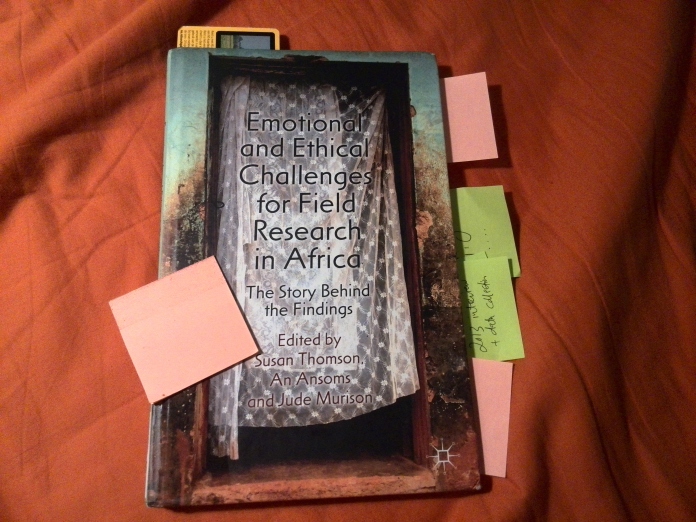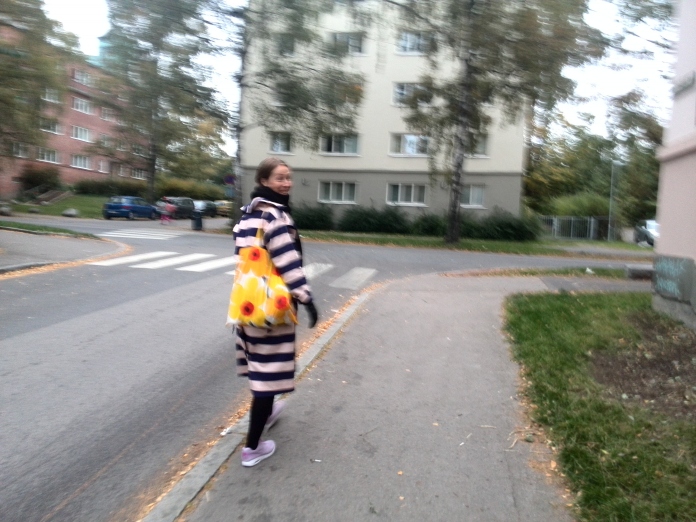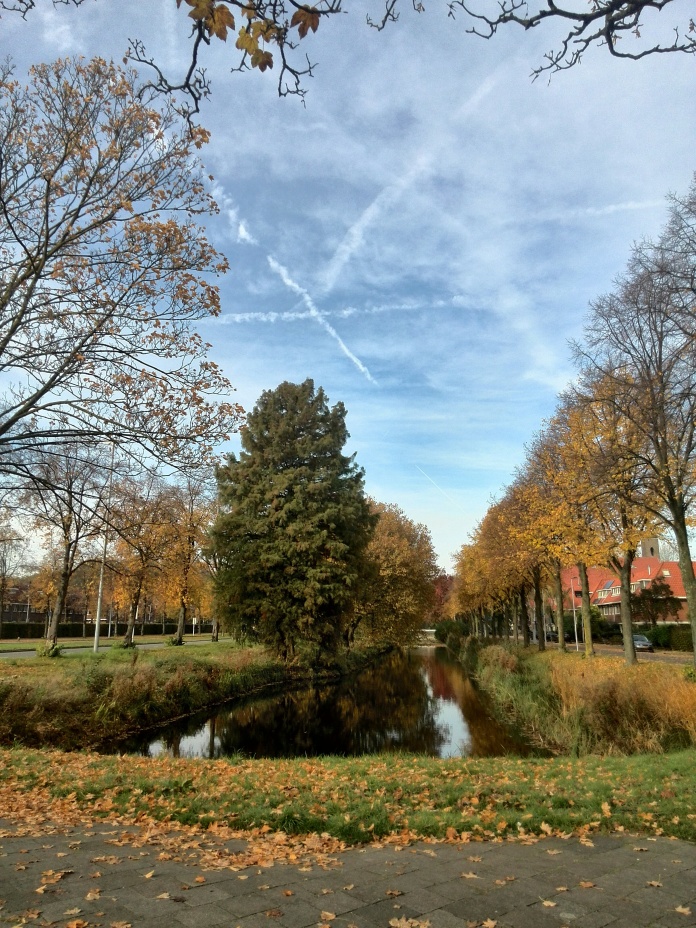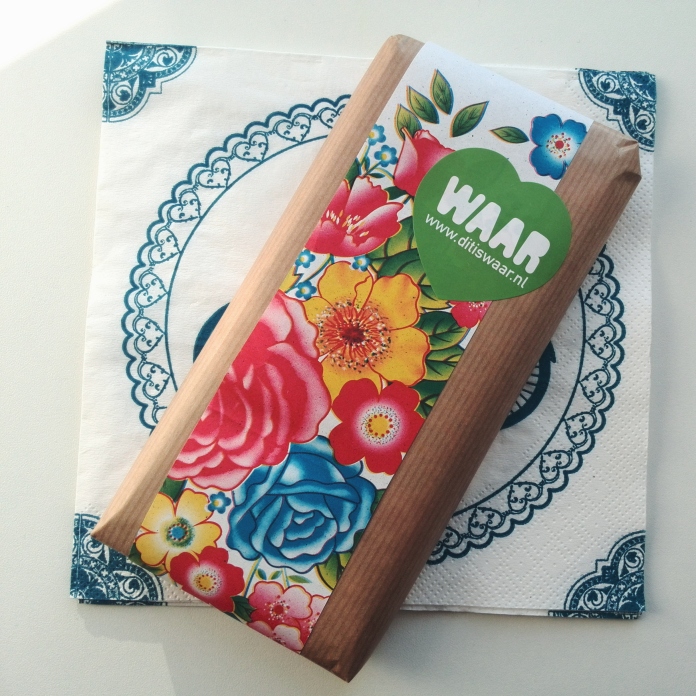“Indeed, the very phrase ‘writing-up’ implies that we are somehow able to unproblematically reproduce the simple truth(s) of our research in our writing…writing is not merely a mechanical process that reflects the ‘reality’ of qualitative research findings but rather constitutes in part how and what we know about our research. Writing is thus not so much a process of writing-up as one of writing-in”*

autumn is here in the northern hemisphere and it is beautiful. a friend of mine says it’s like the city is on fire. she’s right.
my mind and heart have also been on fire a bit the past month as i’ve dived into the history of Burundi, it’s politics and it’s relationship to coffee production. As is the case in many other origins, coffee and politics are inextricably connected in Burundi. And although i had experiential knowledge of this last year working in Burundi, it is the first time i’ve encountered head knowledge of this fact. Blood and coffee lie in the same soil in Burundi; produced by six decades of peasant oppression, supported by consecutive military dictatorships who painfully extracted wealth for a few using the natural capital of many. coffee producer friends of mine in Burundi always say: “there’s so much potential in Burundi, but potential could also kill Burundi”… i understand now what they mean.
 it has taken a while for my smouldering thoughts and emotions to give way to something productive; at last, some green sprouts poke through the soil that has been deeply enriched by the nutrients of the fire. this is writing-in i guess. i am glad i didn’t read too much about Burundi before moving there, i would have had a very tainted view of the country and i think my trust levels would have been pretty low (of people and of institutions). instead, i discovered this living and working there… it’s part of understanding Burundi i guess, which is not a negative perception of place, but perhaps simply just the way things are:
it has taken a while for my smouldering thoughts and emotions to give way to something productive; at last, some green sprouts poke through the soil that has been deeply enriched by the nutrients of the fire. this is writing-in i guess. i am glad i didn’t read too much about Burundi before moving there, i would have had a very tainted view of the country and i think my trust levels would have been pretty low (of people and of institutions). instead, i discovered this living and working there… it’s part of understanding Burundi i guess, which is not a negative perception of place, but perhaps simply just the way things are:
“The question of culture in all of this is fascinating and difficult. Burundians have long been described – and describe themselves – as masters of dissimulation, of not showing their true feelings. They are proud of it and will often jokingly tell you about the fact that you should never trust their words, that a no can always mean a yes and vice versa, that they can warmly hug the man they will kill a few hours later. They treat this as a cultural feature: this is how we Burundians have been since time immemorial, this is our culture.” (Peter Uvin, Life after Violence: A people’s story of Burundi, p.167-168)
“For me, being confronted with lies was an important aspect of my field experience and I have learned that lying did not need to have critical consequences for the relationships between me and my informants – in the sense that it was not always an obstacle or sign of failure. In Burundi, perhaps exaggerated by the conflict-prone environment, lying is part and parcel of (new) social relations at large. The struggle of dealing with deceit, therefore, was an experience that I shared with my informants.” (Lidewyde Berckmoes, ‘Dealing with Deceit: Fieldwork Encounters and Lies in Burundi’, p.138).
also, my heart has been very sad about the inequality in Burundi. and, actually, my heart still occasionally rages with an angry fire about that. and in those moments i catch myself: labelling one group of Burundians and blaming them for what they’ve done to another group of Burundians. and i realise again how hate is born in the heart and the absolute necessity of destroying our labels of mistrust and the need to focus on individuals, not groups. it’s simply too easy to label a group and submerge the dignity of the individual to the actions of the group. it’s much harder to to intentionally choose to invest in understanding individuals.
 i spent a week in Oslo, mostly in Rory&Milda’s koselig living room reading and writing at their table enjoying their plants. it was really helpful to move the thesis cave north for a week, a change in space can be extremely helpful especially when the space feels like home (funnily enough, now that i think of it, i wrote significant parts of my master’s thesis in Meg’s house which also feels like home).
i spent a week in Oslo, mostly in Rory&Milda’s koselig living room reading and writing at their table enjoying their plants. it was really helpful to move the thesis cave north for a week, a change in space can be extremely helpful especially when the space feels like home (funnily enough, now that i think of it, i wrote significant parts of my master’s thesis in Meg’s house which also feels like home).
over and above an awareness of seasonality, i am so aware – and often confused – by context. reading and writing about Burundi in a context so entirely different from it has been a completely new experience. i don’t think i’ve ever had so much distance between the spaces i tangibly interact with on a daily basis and the spaces that my mind is internally processing at the same time. i have been left quite disorientated at times; unsure how to relate to either. i have been challenging myself to push through the emotional discomfort of feeling culturally and intellectually disorientated and write what needs to be written about coffee in Burundi. My thesis is not just about me.

Tony Chocoloney. In Burundi i would make a bar of Tony last 4 months. in Holland i’ve finished half a bar in two days because i can replace it as easily as buying bread and milk.
*(Mansvelt, J. & Berg, L. Writing qualitative geographies, constructing meaningful geographical knowledges, 2010:333)











